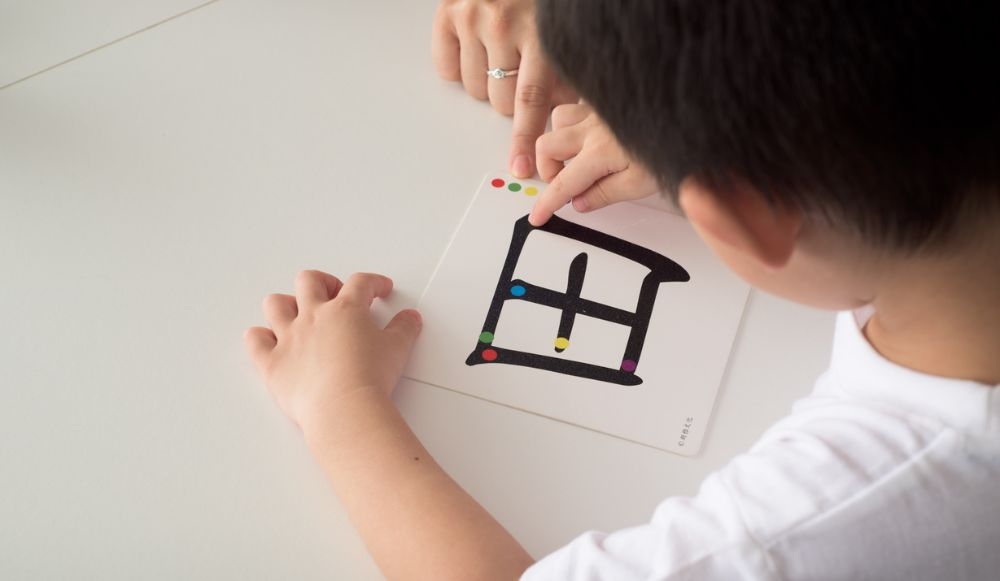Learning a new language can be a daunting task, especially for children. However, introducing your kids to a new language at a young age can have numerous benefits, such as boosting their cognitive development, improving their communication skills, and enhancing their cultural awareness.
Chinese is a fascinating language, with its unique writing system and tonal pronunciation. But how can you make Chinese learning for kids engaging for your kids?
In this article, we will explore 10 exciting ways to teach your kids Chinese, whether they are beginners or already have some knowledge of the language. From games and activities to videos and music, these fun approaches will make learning Chinese an enjoyable experience for your little ones.
- Use songs, rhymes, and games
- Incorporate technology and apps
- Watch Chinese movies and TV shows together
- Cook Chinese food and learn the names of ingredients in Mandarin
- Read Chinese books and comics
- Play Chinese language-learning board games
- Create flashcards with Chinese characters and words
- Attend a Chinese language class together
- Travel to China or a Chinese-speaking community
- Encourage them to find a Chinese pen pal or language exchange partner

10 Fun Ways for Chinese Learning for Kids
1. Use songs, rhymes, and games:
Singing Chinese songs, reciting rhymes, and playing language-based games are all fun and interactive ways to learn Chinese for kids. These activities can help kids learn new vocabulary words and grammar structures naturally and enjoyably.
Plus, this is a fun way to teach Chinese Mandarin to shy kids!
2. Incorporate technology and apps
Incorporating technology and apps into the learning process can make it more interactive and engaging for children. Here are some ways technology and apps can support children to learn Chinese and conversation starters in Chinese.
- Some apps offer interactive activities, such as speaking exercises, where children can practice pronunciation and speaking skills. Apps can also provide virtual flashcards to help children learn new vocabulary words. The flashcards can include audio pronunciation, images, and examples of how the words are used in context.
3. Watch Chinese movies and TV shows together
It is a fun way to introduce your child to the language and culture of China. By watching Chinese movies and TV shows, your child will not only learn the language but also gain an appreciation for the culture and traditions of China.
- Look for Chinese movies and TV shows suitable for your child’s age and interests. For younger children, consider animated shows or movies with simple storylines.
- Watch with subtitles: To maximize the learning experience, watch the content with both Chinese audio and English subtitles. This allows your child to see the words spoken in Chinese and understand their meaning in English.
- Reinforce vocabulary: Keep a list of new vocabulary words your child learns while watching the movie or show. Review this list regularly to reinforce their understanding and help them retain the new words.
4. Cook Chinese food and learn the names of ingredients in Mandarin
Cooking Chinese food together can be a fun way to introduce your child to the language and culture of China. As you cook, teach your child the names of ingredients in Mandarin.
- Choose a simple Chinese recipe: Select a simple Chinese recipe that you and your child can cook together, such as stir-fry or dumplings.
- Gather the ingredients: Before you start cooking, gather all the ingredients you need and review the recipe together.
- Teach the names of ingredients in Mandarin: As you gather the ingredients, teach your child the names of each ingredient in Mandarin. Repeat the names several times and have them repeat after you.
- Cook food together: Cook food together, following the recipe step by step. Encourage your child to participate as much as possible, and point out the names of the ingredients in Mandarin as you use them. Also, learning fruits in Chinese is a great and fun way to start!
5. Read Chinese books and comics
Reading Chinese books and comics is a good way to immerse children in the language and help them build their reading skills. Start with simple books or comics that use familiar characters and stories.
- Improved language skills: Reading Chinese books and comics can help kids develop their reading, writing, speaking, and listening skills in the language.
- Cultural understanding: Reading books and comics in Chinese can provide kids with insights into Chinese culture and history, helping them to understand better and appreciate the culture.
- Vocabulary building: Reading in Chinese can expose kids to a rich and diverse vocabulary, helping them to expand their language abilities.
6. Play Chinese language-learning board games
Playing Chinese language-learning board games can be fun and engaging for kids to learn the language. Some benefits of playing these games include:
- Reinforcement of language skills: Board games can help kids reinforce the skills they have already learned, such as vocabulary, grammar, and sentence structure.
- Interactive learning: Playing games with others provides a social and interactive learning experience, making language learning more enjoyable and memorable.
- Vocabulary building: Board games can help kids expand their Chinese vocabulary by introducing new words and phrases in a fun and engaging way.
- Improved memory: Playing games can help improve memory retention and recall of Chinese vocabulary, making it easier for kids to remember and use the words they have learned.
7. Create flashcards with Chinese characters and words
Creating flashcards with Chinese characters and words is a simple but effective way to help kids learn Chinese. Here are some benefits of using flashcards:
- Repetition: Repetition is key to language learning, and flashcards allow for repeated exposure to Chinese characters and words, helping kids to remember them more easily.
- Vocabulary building: Flashcards can be used to build a wide range of vocabulary, from common words and phrases to more specialized terms.
- Convenient and portable: Flashcards are small and easy to carry, so kids can study anytime, anywhere.
- Customizable: Parents and teachers can create flashcards that are tailored to their child’s interests and language abilities, making the learning experience more engaging and enjoyable.
- Multisensory learning: By writing and seeing the characters, kids can engage multiple senses, making the learning experience more memorable and effective
8. Attend a Chinese language class together
Put your child in a Chinese language class, where they can practice speaking and listening with other children and a qualified teacher.
- Find a suitable class: Find a Chinese language class that is appropriate for your child’s age, language level, and interests. Some classes may be more focused on speaking and conversation, while others may be more focused on reading and writing.
- Interact with a teacher: Attend the class with your child, so that they have the opportunity to interact with a teacher who is knowledgeable about the language and culture. The teacher can provide feedback, answer questions, and provide additional practice opportunities.
- Practice speaking: Encourage your child to practice speaking in Mandarin, by asking them to participate in class activities, answer questions, and engage in conversations with classmates.
9. Travel to China or a Chinese-speaking community
Traveling to China or a Chinese-speaking community can be a unique and immersive experience for kids learning Chinese. Here are some benefits of travel for language learning:
- Real-life practice: Traveling provides an opportunity for kids to practice speaking the language in real-life situations and improve their speaking skills.
- Cultural immersion: Traveling exposes kids to Chinese culture, traditions, and customs, allowing them to better understand and appreciate the language and culture.
- Increased motivation: Traveling can be a fun and exciting experience for kids, providing a sense of adventure and motivation to continue learning the language easily.
- Improved listening and comprehension: Hearing the language spoken in real-life situations can help kids improve their listening and comprehension skills.
- Lasting memories: Traveling can be a memorable experience for kids, providing a foundation for a lifelong love of learning the language.
10. Encourage them to find a Chinese pen pal or language exchange partner.
Encouraging kids to find a Chinese pen pal or language exchange partner is a great way to help them practice speaking the language and improve their skills. Here are some benefits of having a pen pal or language exchange partner:
- Practice speaking: Having a conversation partner provides kids with the opportunity to practice speaking the language in a low-pressure, supportive environment.
- Improved comprehension: Talking to a native speaker can help kids better understand spoken Chinese and improve their listening skills.
- Cultural exchange: Kids can learn about Chinese culture and customs from their pen pal or language exchange partner and share their own culture as well.
- Personal connection: Building a personal connection with someone from another culture can help kids develop a positive attitude towards the language and culture.
- Fun and engaging: Talking to someone from another country can be a fun and engaging experience for kids, providing motivation to continue learning the language.
By incorporating these fun and engaging ways to teach Chinese, you can help your child make progress in learning the language and maintain their interest in the subject.


